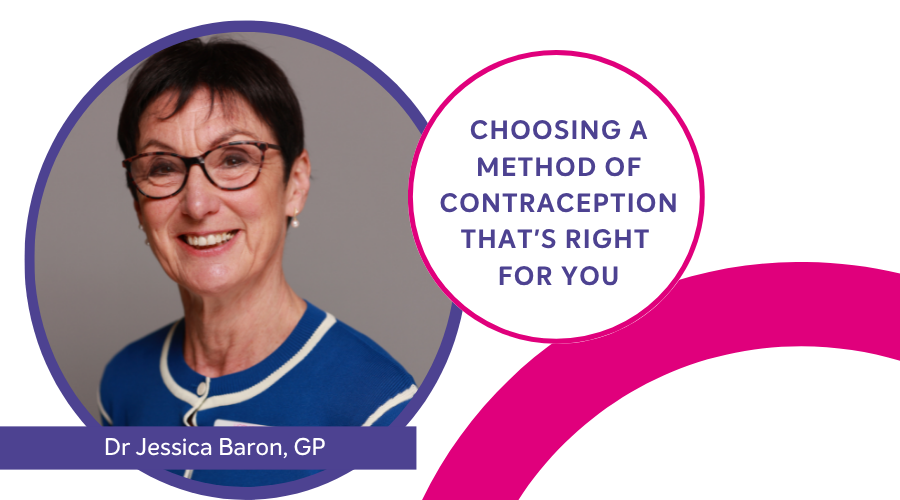Contraception Explained: Finding the Method That Fits Your Life

In the UK, around 45% of pregnancies are unplanned, highlighting the ongoing need for effective and accessible contraception.
Making decisions about contraception is one of the most important aspects of a woman’s reproductive health. The ability to control fertility; whether to have children, when to have them, how many to have, and with whom is not just a matter of convenience. It plays a key role in a woman’s autonomy, overall wellbeing, and ability to plan for the future on her own terms.
With so many contraceptive options available today, the decision can feel overwhelming. However, with professional guidance and a clear understanding of each method’s benefits and limitations, you can choose a form of contraception that aligns with your lifestyle, health, and personal values.
Why Contraceptive Choice Matters
Every woman has different health needs, family planning goals, and preferences. A method that works perfectly for one individual may not be suitable for another. Factors such as age, medical history, future fertility plans, hormonal sensitivity, and even convenience play a key role in determining the best option.
Beyond preventing unplanned pregnancies, contraception can have additional health benefits. Some methods help regulate menstrual cycles, reduce the risk of certain cancers, treat acne, or manage conditions like endometriosis or polycystic ovary syndrome (PCOS).
Types of Contraceptive Methods
Contraceptive options fall into several categories:
A. Non Hormonal Methods
1. Intrauterine Device (IUD)
Non-hormonal coil (copper) that prevents fertilisation and can last 5 to 10 year. This is a LARC-a long acting reversible contraception
2. Barrier Methods
These prevent sperm from reaching the egg.
- Condoms (male and female): Also offer protection against sexually transmitted infections (STIs).
- Diaphragms and cervical caps: Used with spermicide and inserted before intercourse
B. Hormonal Methods
1. Combined Hormonal Contraception
These methods use synthetic hormones to prevent ovulation, thicken cervical mucus, or thin the uterine lining.
- Combined Oral Contraceptive Pill (COC) The Pill: Contains oestrogen and progestogen. Effective when taken daily and may improve acne, PMS, and heavy periods. There is a big choice of pill with different amounts and type of hormone.
- Contraceptive Patch: Applied to the skin and changed weekly. Delivers hormones steadily through the skin.
- Vaginal Ring: Inserted into the vagina once a month; releases hormones locally.
2. Progesterone Only Contraception
- Progestogen-only Pill (POP): Suitable for those who cannot or do not want to take oestrogen. Best taken at the same time daily.
- Injectable Contraceptive: Given every 8 to 13 weeks, depending on the type. Can be self administered
- Implant: A small rod placed under the skin of the upper arm; effective for up to three years. Also a LARC – long acting reversible contraception
- Intrauterine System (IUS): Hormonal coil placed inside the uterus .Lasts for 3 to 5 years and reduces menstrual bleeding and pain. A LARC
C. Fertility Awareness Methods
Based on tracking ovulation and abstaining or using barrier protection during fertile windows. Requires very careful monitoring and discipline.
1. Permanent Methods
These are surgical procedures and are considered irreversible.
- Female sterilisation (tubal ligation): Blocks or seals fallopian tubes.
- Male sterilisation (vasectomy): Blocks sperm from being released during ejaculation.
2. Emergency Contraception
Used after unprotected sex or contraceptive failure.
- Emergency contraceptive pills (ECP): Most effective when taken as soon as possible.
- Copper IUD (coil): Can be used as emergency contraception if inserted within five days.
How to Choose the Right Method for You
No single method is best for everyone. The right contraceptive method depends on a number of factors, including:
- Your age and stage of life
- Desire for short-term versus long-term reversible contraception
- Plans for future pregnancy
- Menstrual patterns and health conditions
- Smoking status (especially if over 35)
- Risk of blood clots or cardiovascular disease
- Frequency of sexual activity
- Personal preference and comfort
Hormone Health support
At Hormone Health, we are passionate about providing evidence-based information to help women make informed decisions regarding their health.
Our Associates are specialists in reproductive and hormonal health. We take a holistic, patient-centred approach to contraception, ensuring your chosen method aligns not only with your medical profile, but also with your lifestyle and personal goals.
During your consultation, we’ll review your medical history, discuss your reproductive plans, address any concerns about side effects or hormone sensitivity, and present a full range of options. We also offer a private prescription service, making it easier and more discreet to access your chosen contraceptive method.
Dr Jessica Baron is a highly experienced General Practitioner with 44 years’ medical experience, and has specialised in women’s health for 35 years.
Arrange a consultation with Dr Baron.